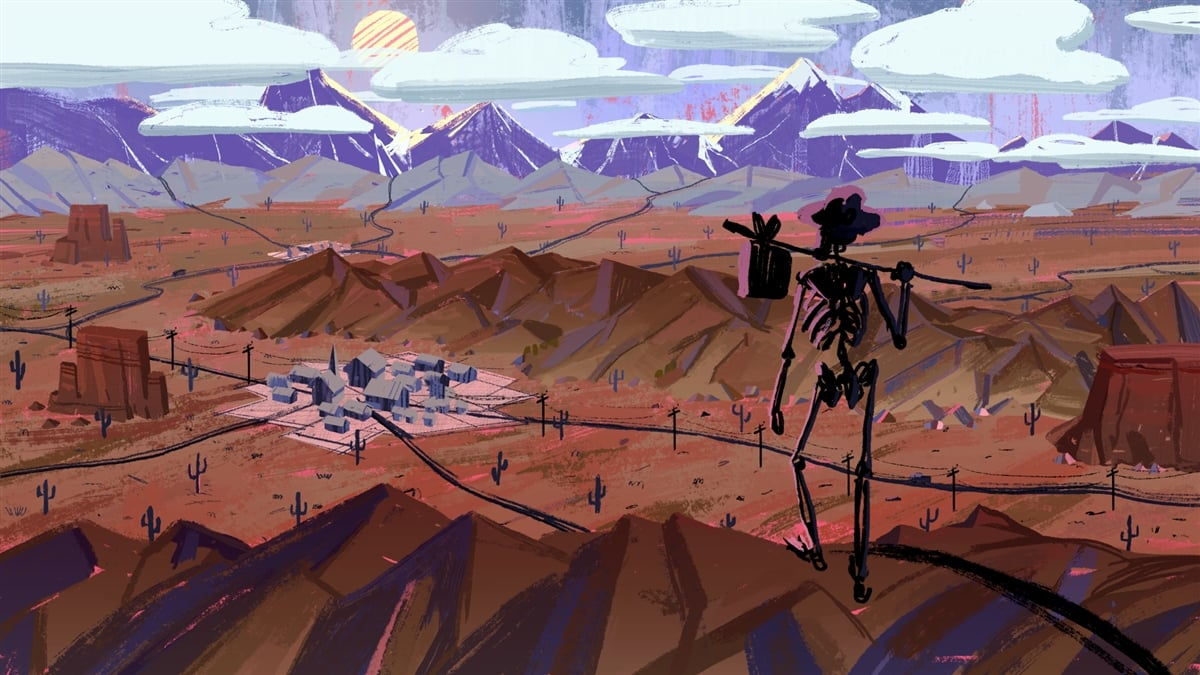You will never get this Steam Achievement – there is a reason
Achievements and trophies are a reason for many players to invest more time in a game. However, a Steam game has an unattainable achievement.
Kill 2,000 monsters. Complete all sidequests. Run once completely over the world map. Achievements or trophies in video games are often quite uninspired. This is not surprising, as these are specifications from platform providers such as Playstation, Xbox or Steam. Only Nintendo has not yet introduced an achievement system. In “Resident Evil 8” there is a trophy for getting a shot arrow out of the air with a knife. Not many players have made it so far – but it is an example of how this reward system can be used in an original way.
Contents
The unattainable achievement
Now there is a game on Steam that has a very special achievement – namely one that you cannot get at all. “Where the Water Tastes Like Wine” is a mixture of a visual novel and a puzzle game in which players are transported back to the Great Depression of the USA in the 1920s and 1930s. The game was released on Steam in 2018 and for Playstation 4, Xbox One and Nintendo Switch at the end of 2019. But only now has a developer explained to colleagues from Kotakuwhy they built an achievement into the game that no one can achieve. “A big theme of our game is the idea that America promises a lot to its citizens – but cannot keep most of them,” Johnnemann Nordhagen told Kotaku. Therefore the last achievement, which is called “Where the Water Tastes Like Wine” like the game, is not attainable for anyone. “In the end there should be no resolution.”
So the game is an impressive example of how achievements can be used as a narrative element. It is regrettable that the studio had to remove this feature in the versions for Playstation 4 and Xbox One. Both providers do not allow trophies that cannot be achieved.
What are achievements and trophies used for?
There are some angry comments in the Steam reviews of “Where the Water Tastes Like Wine”. Some gamers have noticed that they cannot complete this game 100 percent – and it bothers them. “The game is not for completists.” But what is actually behind it? Jamie Madigan is a PhD in Psychology and has the question on his side The Psychology of Video Games followed up some time ago. He names eight reasons why achievements and trophies work – and what they do with the players. The most important thing is that the rewards increase self-efficacy, i.e. the certainty that you can achieve something. The game has an achievement for that, so it has to be possible. This would turn these rewards into solid goals that motivate players to keep going. And of course, comparability and social interaction also play a role: if you see that your friends have received certain trophies, you are motivated to achieve them. It is not for nothing that all platforms are very willing to show which achievements the people on the friends list have gotten hold of.
For the studios, the rewards are therefore a welcome means of keeping players engaged. Especially in “Games as a Service” games that receive updates over the months, these achievements can be a reason to constantly return to the game. This increases the playing time, which in turn can lead to higher sales. Because to get the last achievement, you need a very specific weapon – and it costs money. Trophies and achievements are, at best, nice rewards for players. In the worst case, however, they become leverage for people who absolutely want to complete games. But what is it like for developers to create them?
Does it really annoy developers to create achievements?
t3n talked to several developers about what this work actually looks like: to think about tasks and achievements in games for which the players can receive trophies. When asked whether this work is actually annoying, most of them answered with a “No … but”.
“Since we all gamble, it’s fun to come up with cool achievements and then build them in – sometimes this creates a cool meta-level that couldn’t be represented in the normal course of the game,” says Johannes Roth, founder of Mimimi Gameswho have already developed games like “Desperados 3” or “Shadow Tactics”. For him and his studio, achievements are an opportunity to get creative again. Matthias Guntrum, co-founder and project lead of Gentlymadwho are responsible for “Endzone: A World Apart”. “If you have the time, it’s usually even fun, because then you can accommodate very nice Easter eggs or little gags. We sit down every now and then for something like that and see what would be a nice challenge as an achievement, ”he says.
All the developers we spoke to said that they at least try to put some effort into creating achievements. They want to surprise the players with the tasks they can perform, remember their own experiences in a game and the desire to do everything in a game. It is a particular satisfaction for many to see the “100 percent” in a video game – to know that they have made it all.
Still, achievements can add stress and extra work. There is no option to simply leave them out. Steam, Playstation or Xbox make them a prerequisite for a game to be offered in the respective store at all. And that’s the crux of the matter: in order to decide which achievements to earn trophies, a game has to be as good as finished. This means that this work can only take place at the end of production – at the most stressful time.
“We planned 30 working days for ‘Escape the Loop’: ten for the achievement type, which has its own requirements on each platform. Ten for the achievement design and ten for the technical implementation, ”Benjamin Lochmann, CEO of, tells us Pixel maniacswho have already spoken to us about marketing their game “Can’t Drive This” on Tiktok. In addition, every text has to be translated into different languages. “It wasn’t easy, especially with achievements where the lyrics are funny,” he says.
So it is the time pressure to get creative again shortly before the release and the technical implementation that can make achievements a tedious matter. Especially when the game appears on multiple platforms at the same time. Stephan Hövelbrinks was right in the middle of this work. His game “Death Trash” will be released on August 5th after years of work. He especially annoyed that the little things would add up. “If I add a new achievement, all I have to do is change some code. But then I might need an achievement picture in different sizes, description in different languages, and then I have to enter the whole thing in several backends, ”he says.
Whether “Where the Water Tastes Like Wine” or “Death Trash”: Achievements also mean work for developers. Sometimes they contain interesting ideas, sometimes they are just work to be ticked off so that the game can be allowed. The next time a trophy pops up in a game, pause for a moment: this is what a person thought up.



